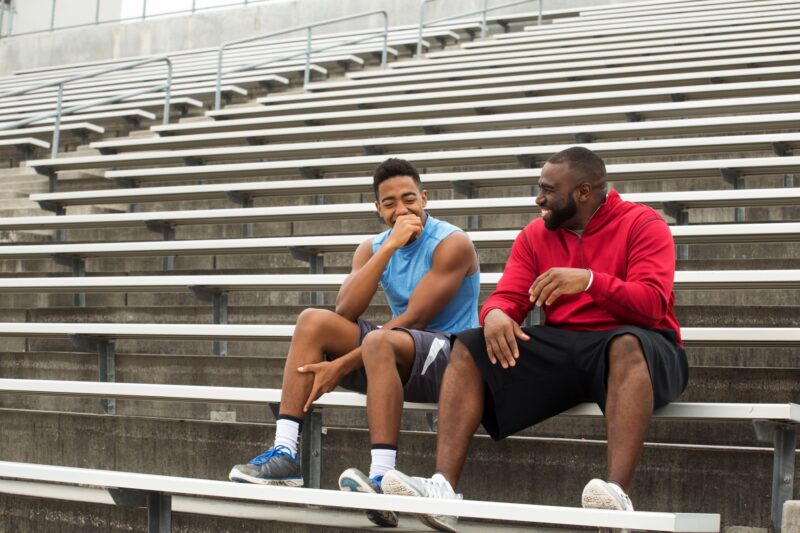Being the parent your student-athlete needs you to be requires self-awareness, honesty, communications skills and tough love – What, that’s all? – according to an Akron Children’s sports psychologist.

Being the parent of an athlete has its challenges but paying attention to their needs can be a game changer.
Allyson Weldon, PhD, provides some common scenarios and fundamental guidance for parents.
Are they having fun?
Is it their dream they’re living on the field, or is it yours?
“Regardless of the level of sport, it’s meant to be fun,” Dr. Weldon said.
Pay attention to whether it looks like your child is having fun, she said. If not, then maybe it’s time to have that conversation about whether they really want to be out there. Athletes sometimes need to be given permission that it’s OK to take a break from the sport after the season ends, she added.
Sometimes what affects the child’s interest or performance on the field is school-related or social-related, and it’s not necessarily that they don’t love the sport anymore. Find those triggers.
Your child feels like they lost the game for their team.
First and foremost, pay attention to what your child needs, “which sounds so easy but it’s very hard at the same time,” she said.
Is your child someone who is more motivated by constructive criticism or do they just need you to be supportive and not point out all the mistakes that happened?
“Be the open observer,” she said. “Reflect on what you were seeing. Start the conversation with ‘That was a tough loss today. I can see you’re upset. I’m here if you want to talk.’”
And if they want to go to their room and sulk, that’s OK, too. But with time limits.
“We don’t want them to dwell on the same game for days,” Dr. Weldon said. “The rest of that evening would be fine, but then the next day try to cheer them up and not let them focus too much on what happened the night before.”
You cannot make it to an important game.
Is there anything worse than parent guilt? Life circumstances sometimes prevent us from making it to everything – a work conflict, another child’s activity, a financial hardship, etc. What’s the best way to handle that?
Dr. Weldon says to communicate to your student-athlete why you cannot attend and that you’re trying your best to accommodate everyone in the household. Start with ‘I’d really like to be there, but …’
And if something changes on your end in the meantime, “Surprise visits to games can be very meaningful to the athlete.”
Your child is upset about playing time or a position change.
It’s OK to advocate for your child, but as the athlete gets older, it’s an opportunity to encourage the child to be the one to say something, she said.
Dr. Weldon recently worked with a 12-year-old who wanted to play a different position in his sport than where the coach had him. The mom in this instance initiated with the coach, ‘Hi coach, my son wants to talk with you.’ She stood nearby in support but made him have that conversation and take ownership of it, and it went very well, she said.
Akron Children’s Sports Medicine provides parents and young athletes the resources and treatment options they need to have the healthiest sports seasons possible, both mentally and physically. Reach out at 330-543-8260 to schedule an appointment in Akron, Boardman, Boston Heights, Medina, North Canton or Warren.










